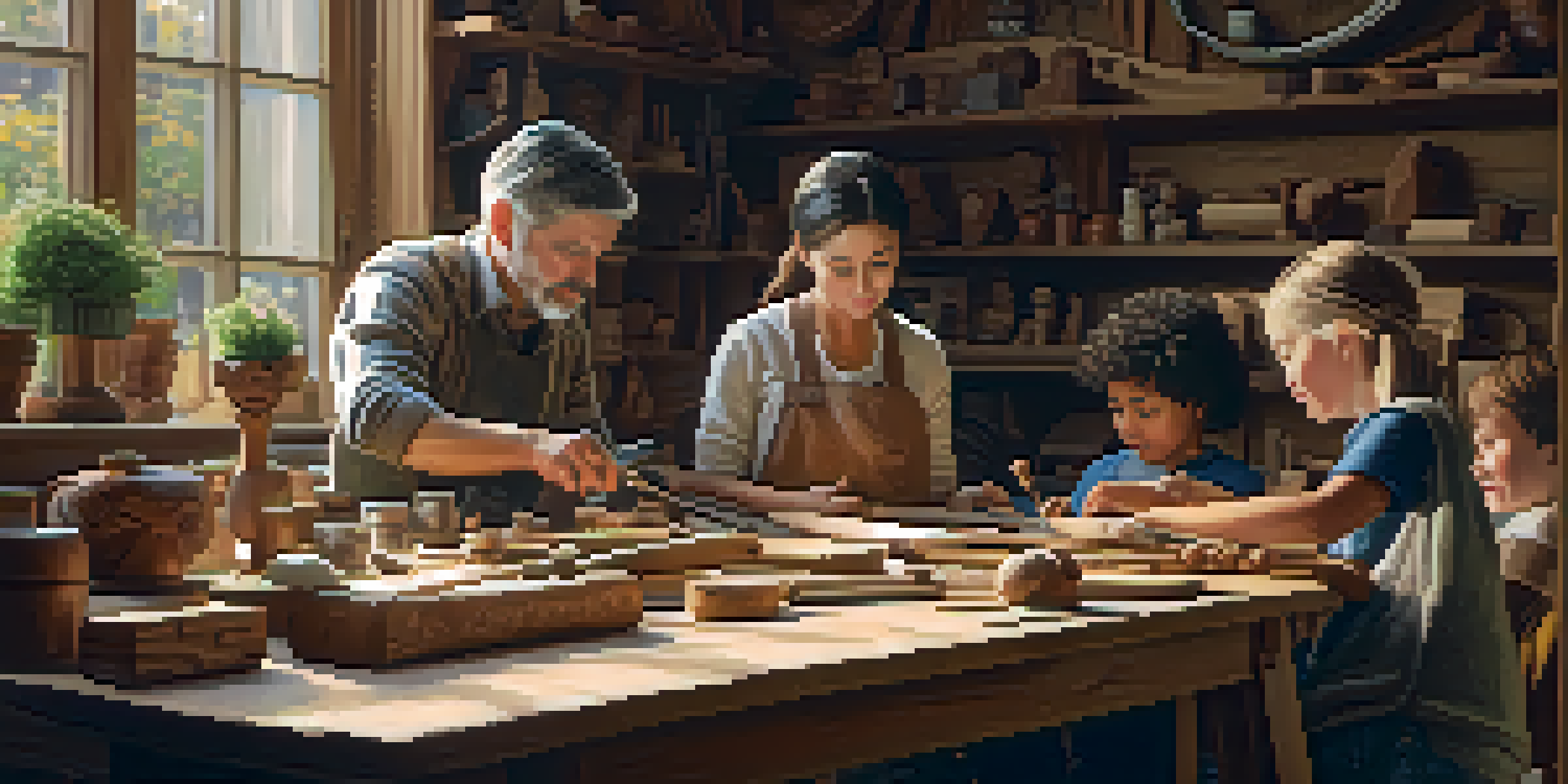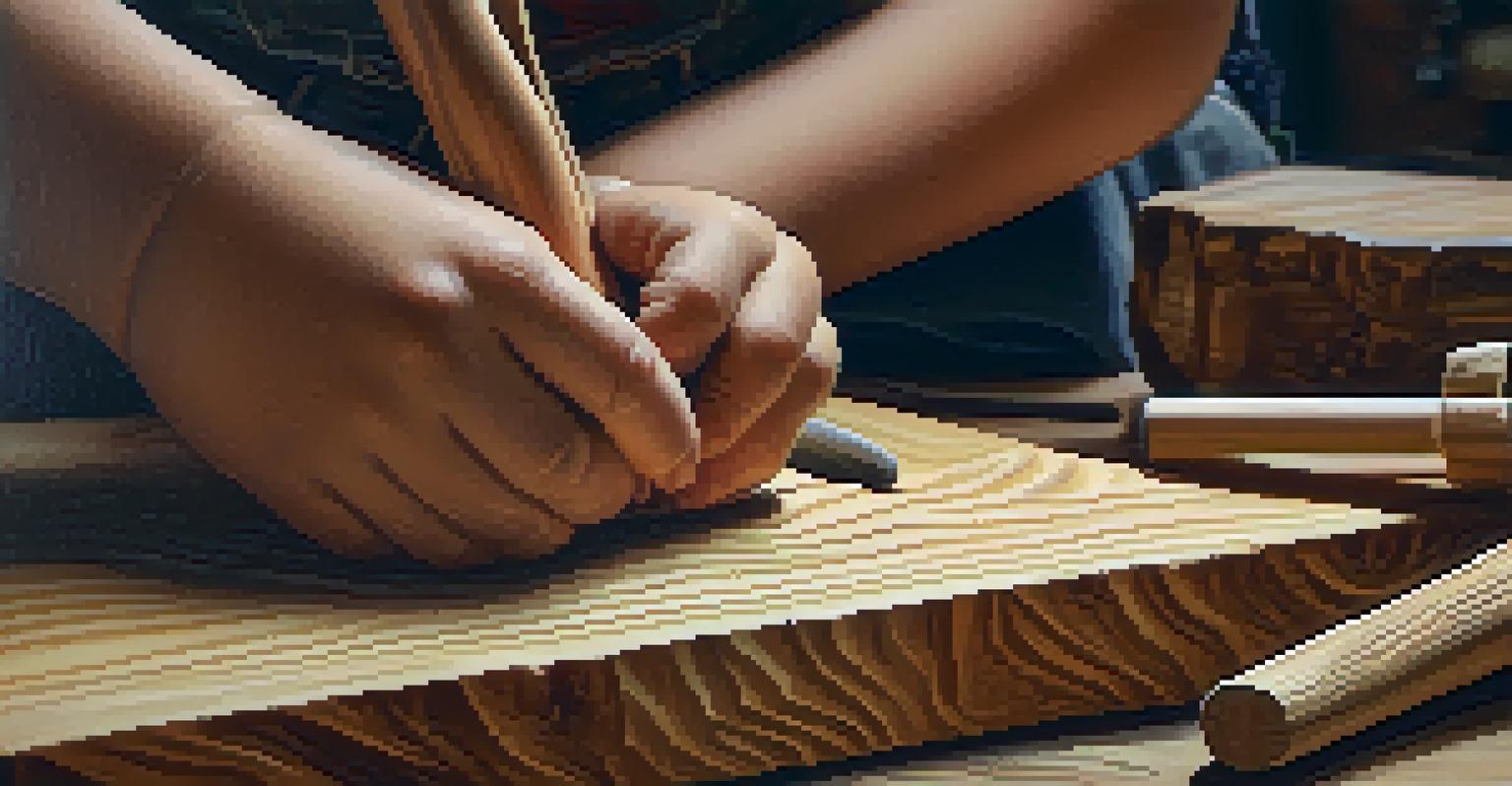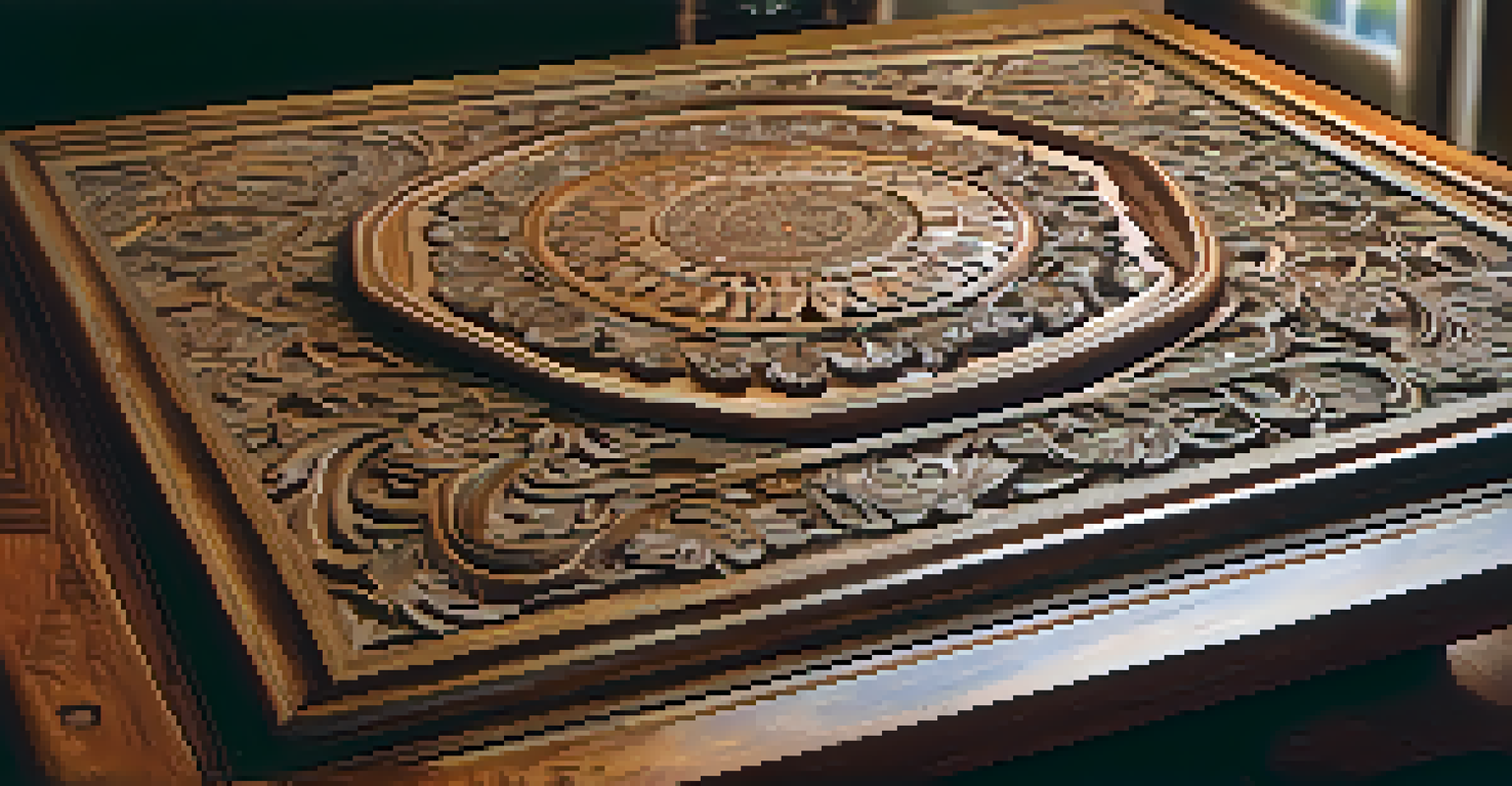Family Carving Workshops: A Tradition Worth Pursuing

The Joy of Creating Together: Family Bonding
Family carving workshops provide a unique opportunity for families to bond while expressing their creativity. Imagine gathering around a table, tools in hand, as everyone contributes to a shared project. This collaborative effort not only fosters teamwork but also strengthens relationships through shared experiences.
Creativity is contagious, pass it on.
As families carve together, they create lasting memories, which can be cherished for years to come. Each stroke of the chisel or cut of the knife tells a story, capturing moments of laughter, frustration, and ultimately achievement. These workshops become a canvas for family narratives, adding depth to the art they create.
Moreover, working side by side helps to break down barriers between generations. Children learn from their parents and grandparents, absorbing not just the skill of carving but also valuable life lessons. This passing down of knowledge creates a legacy that can be enjoyed for generations.
Learning the Craft: Skills for Everyone
One of the most appealing aspects of family carving workshops is that they cater to all skill levels. Whether you're a seasoned woodworker or a complete novice, there's something to learn for everyone. Instructors typically provide step-by-step guidance, making the process accessible and enjoyable.

Workshops often start with the basics, teaching essential techniques that can be built upon as participants gain confidence. For example, understanding how to properly hold tools and make precise cuts is crucial, and these fundamentals are taught in a supportive environment. As families progress, they can take on more complex projects together.
Bonding Through Creative Workshops
Family carving workshops foster teamwork and create lasting memories through collaborative projects.
This hands-on learning experience also promotes a sense of accomplishment. Completing a carving project, no matter how simple, instills pride and boosts self-esteem. Families leave with not only their finished pieces but also a newfound appreciation for craftsmanship.
A Connection to Nature: Using Natural Materials
Carving workshops often emphasize the use of natural materials, such as wood, which fosters a deeper connection to nature. Participants learn about the different types of wood, their textures, and how to choose the right material for their projects. This educational aspect enhances their understanding of the environment and the resources around them.
The best way to predict the future is to create it.
Working with wood also encourages mindfulness. As families focus on the grain and patterns in the material, they become more attuned to the beauty of nature. This connection can inspire respect for the environment and a desire to preserve it, turning a simple crafting session into a meaningful experience.
Additionally, using sustainable materials can instill eco-consciousness in younger generations. Families can discuss the importance of responsible sourcing and the impact of their choices, making carving an opportunity for both creativity and environmental education.
Celebrating Traditions: Creating Heirlooms
Family carving workshops often lead to the creation of unique heirlooms that can be passed down through generations. Imagine a beautifully carved figure that becomes a cherished piece in your family, telling stories of your history and experiences. These creations hold sentimental value, transcending their physical form.
As families carve together, they often infuse their cultural heritage into their projects. This can mean incorporating traditional designs or symbols that reflect their backgrounds. Such personalization adds depth to the pieces and reinforces family identity, making the act of carving even more special.
Mindfulness and Focus in Carving
Engaging in carving promotes mental well-being by encouraging patience and focused attention.
Moreover, these heirlooms serve as conversation starters, sparking stories and memories during family gatherings. They connect the past with the present, reminding younger members of their roots while celebrating the creativity of previous generations.
Embracing Patience and Focus: Mindfulness Through Carving
Engaging in carving requires a level of patience and focus that can be therapeutic. In today's fast-paced world, sitting down to carve allows families to slow down and immerse themselves in the moment. This mindfulness is beneficial, promoting mental well-being and reducing stress.
As participants work on their projects, they learn to concentrate on the task at hand, letting go of distractions. This focused attention not only improves their carving skills but also teaches valuable life skills, such as discipline and perseverance. It's a lesson that extends beyond the workshop into daily life.
Furthermore, the repetitive motions involved in carving can have a calming effect, similar to meditation. Families often find themselves in a peaceful rhythm, enhancing their connection to each other and the craft. This shared tranquility can create a harmonious atmosphere, making the experience even more fulfilling.
Building Community: Connecting with Others
Family carving workshops often bring together people from diverse backgrounds, fostering a sense of community. Participants share their experiences, techniques, and stories, creating an environment of camaraderie. This interaction can lead to new friendships that extend beyond the workshop setting.
In addition, these workshops often encourage collaboration among families. Working on joint projects can help strengthen ties, not just within families but also between them. The joy of creating something together breaks down barriers and promotes a sense of belonging.
Creating Heirlooms and Traditions
Carving together allows families to create unique heirlooms that reflect their cultural heritage and strengthen family identity.
Community involvement also opens the door to local traditions and practices. Families might be introduced to local artisans or cultural events, enriching their understanding of the craft and its significance in the community. This shared experience can deepen their appreciation for the art of carving.
The Future of Carving: Passing Down a Passion
As families engage in carving workshops, they are not just creating art; they are nurturing a passion that can be passed down through generations. Parents and grandparents can inspire children to appreciate craftsmanship, encouraging them to explore their creativity. This transmission of passion ensures that the art of carving continues to thrive.
Through workshops, families learn the importance of preserving traditions while also adapting to modern trends. For instance, they may incorporate contemporary designs into their projects, blending old and new techniques. This flexibility keeps the craft relevant and exciting for younger generations.

Ultimately, these workshops serve as a launchpad for future artisans. As children develop their skills and confidence, they may choose to pursue carving as a hobby or profession. By fostering this passion, families contribute to the evolution of the craft, ensuring its place in the future.